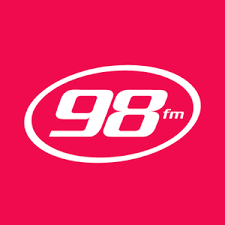

SDG3 target 3.6: By 2020, halve the number of global deaths and injuries from road traffic accidents
Where: Brazil
The challenge:
Approximately 1.25 million people die annually from road traffic injuries and more than half of all road traffic deaths are among vulnerable road users, including cyclists. In Brazil, a significant proportion of road traffic accidents occur between cyclists and drivers - often when cyclists enter the ‘blind spot’.
Our client wanted to find a practical way of helping minimise the deaths and injuries suffered by cyclists. If drivers can be made aware that there are cyclists in the vicinity then hopefully they will drive with more awareness.
The execution:
We worked with 98FM radio in Brazil to develop the “Safety Bike Radio” a solution that relied on the power of radio in the form of a portable radio transmitter that overlaps with the frequency of radio stations in moving vehicles (maximum interference distance: 30 meters). This disruptive transmitter sends an alert message to drivers that cyclists are nearby.
The technology requires cyclists to download an app and synchronise it with a portable radio transmitter that is attached to water bottles, then fixed to the bike or the rider. Cyclists can use pre-recorded messages to warn motorists but can also record their own customised messages, as well as transmit live to motorists with warnings about traffic situations and other hazards.
In Brazil, as in many countries including the US, interfering with radio frequencies is generally illegal. But exceptions can be made with the approval of stations - and so 98FM has distributed the technology and invited all radio stations to participate in the “Safety Bike Radio” project. The blueprints of the technology have been shared under Common Creative licence meaning anyone can construct one of these simple, affordable, life-saving transmitters.
The results:
The project first launched in the Brazilian state of Minas Gerais before expanding to other parts of the country. Awareness spread quickly after the project got picked up by the media, spreading the word through both general and specialised publications. The programme has had “great support” from radio station owners in the country “who want to get on board and help to save lives."
Foot Locker
Foot Locker is always looking for new ways to innovate and improve the shopping experience for its customers. As a result, the brand asked dentsu gaming to integrate a new augmented reality feat...
U.S. Pharmaceutical Manufacturer
From a diagnostic and descriptive analysis approach, the solution evolved into a robust advanced analytics omnichannel measurement framework that was proactive and prescriptive in nature.
DENTSU CREATIVE China: KFC Re:Store
KFC is the largest and most successful restaurant brand in China. Launched in 1987, the brand has grown to encompass over 9,000 stores in 1,600 cities. A steady stream of innovation has kept the...
Suraksha Ka Teeka
As per the Global Fund 2020-22 Report, Malaria is one of the major public health problems in India. With children 5 times more vulnerable to this disease, their cases were witnessing a sudden ou...
